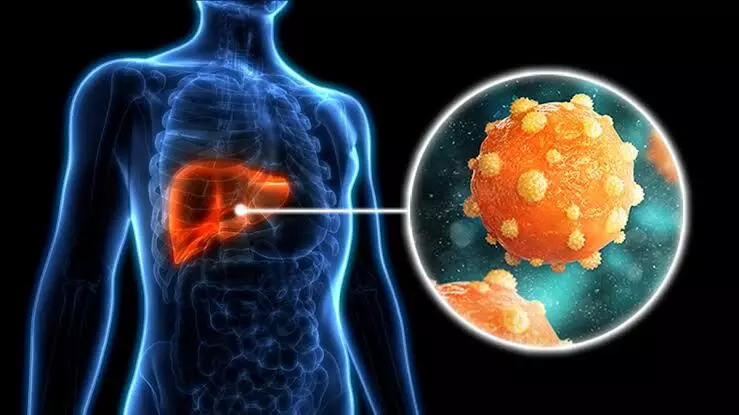World Hepatitis Day: How vaccinations can prevent Hepatitis A and B infections
World Hepatitis Day is observed on July 28 to raise awareness about viral hepatitis that affects the liver and claim thousands of lives every year
By Newsmeter Network
World Hepatitis Day is observed on July 28 to raise awareness about viral hepatitis,
Hyderabad: World Hepatitis Day is observed on July 28 to raise awareness about viral hepatitis, a group of infectious diseases that affect the liver and claim millions of lives worldwide.
Despite being preventable and treatable in many cases, hepatitis continues to be one of the most underdiagnosed and overlooked health threats, particularly in countries like India, where early detection and awareness remain low.
Hepatitis refers to inflammation of the liver and can be caused by viruses, alcohol use, lifestyle disorders, or exposure to toxic substances. Viral hepatitis is the most common and dangerous form, divided into five types: Hepatitis A, B, C, D, and E. These viruses affect hundreds of millions of people globally and can lead to severe complications like liver cirrhosis, liver failure, and liver cancer.
Dr. Sreekanth Appasani, Consultant Interventional Gastroenterologist at KIMS Hospitals, Secunderabad, stressed the urgency of proactive healthcare and public education. He said that neglecting hepatitis is leading to deaths of many individuals, and most of these fatalities are occurring among people below the age of 55.
Understanding the Different Types
Each type of viral hepatitis is caused by a different virus and spreads in different ways. Hepatitis A and E are primarily transmitted through contaminated food and water. These forms are often linked to poor sanitation and typically resolve on their own, but can cause severe illness in some cases.
Hepatitis B and C, on the other hand, are bloodborne infections. They are commonly transmitted through unprotected sex, shared needles, unsafe medical procedures, and blood transfusions. Hepatitis D occurs only in individuals already infected with Hepatitis B, making co-infection a serious concern.
According to global health data, around 13 million people across 187 countries have died due to hepatitis. Of these, 87 percent of deaths were due to Hepatitis B, while 17 percent were caused by Hepatitis C. In India, the diagnosis rate of viral hepatitis remains very low. Among the total hepatitis patients, 2.4 percent are affected by Hepatitis B and 28 percent by Hepatitis C.
Lifestyle Risks and the Rise of Fatty Liver
Dr. Appasani pointed out that apart from viral infections, other contributors to hepatitis include alcohol consumption, traditional herbal medications, and the growing prevalence of fatty liver disease.
He noted that non-alcoholic fatty liver disease is on the rise, with around 25 percent of patients currently affected. This condition, he explained, is largely due to lifestyle changes and increasing rates of obesity. He cautioned against the use of native or herbal medicines for jaundice, stating that they often worsen the condition rather than cure it.
Recognising Symptoms Early
Hepatitis can present as general weakness, fatigue, loss of appetite, and jaundice. If left untreated, the disease can silently progress to liver cirrhosis, liver failure, or liver cancer. In some cases, it can be fatal.
Early diagnosis through blood tests and liver function assessments is key to preventing complications. Unfortunately, due to low awareness and limited screening, many people only discover the disease at an advanced stage.
Vaccination and Prevention
Vaccination is a powerful tool in preventing Hepatitis A and B infections. Dr. Appasani explained that children between the ages of 1 and 18 should receive two or three doses of the Hepatitis A vaccine. Adults are advised to take a booster dose 6 or 12 months after the initial dose. These vaccines offer protection for up to 15 to 20 years.
Hepatitis B vaccination is included in India’s National Immunisation Program and is recommended for everyone, especially healthcare workers, children, and individuals at higher risk of exposure.
Hepatitis A and E generally resolve without treatment, but Hepatitis B and C require medical intervention. Antiviral medications can control or cure these infections if detected early. Advanced cases may require liver transplantation.
Practical Measures for Prevention
Dr. Appasani emphasized the importance of safe sexual practices, avoiding shared needles, refraining from alcohol, and maintaining proper hygiene. He encouraged the public to drink clean water, eat hygienic food, and steer clear of traditional remedies that have not been scientifically validated.
Maintaining a healthy lifestyle and reducing obesity are also critical in preventing fatty liver, which can silently lead to liver damage if ignored.
A Call to Action
On this World Hepatitis Day, experts are urging people to take hepatitis seriously. While the disease remains silent in its early stages, the long-term impact on health can be devastating. Awareness, vaccination, and lifestyle changes are crucial in preventing unnecessary deaths and building a healthier population.